Omega-3 fatty acids are essential for maintaining a healthy heart, brain function, and reducing inflammation, but finding vegan sources can be a bit of a challenge. Have you ever wondered how to get enough Omega-3s on a plant-based diet? You’re not alone! Many vegans are on the lookout for the best sources of these essential fats without compromising their ethical choices. Whether you’re new to veganism or a seasoned pro, this guide will walk you through the top vegan sources of Omega-3, how much you need, and why it’s so important. Let’s dive in!
This website may contain affiliate links. If you make a purchase through these links, I may earn a commission at no extra cost to you. Thank you for supporting this site.
Table of Contents
What Are Omega-3 Fatty Acids?
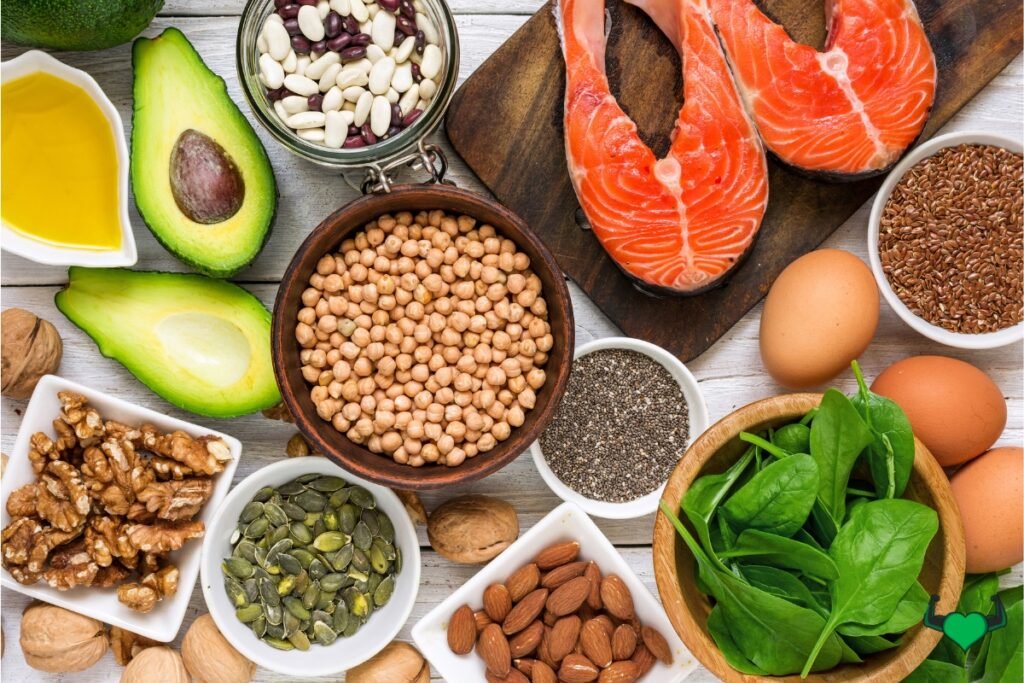
Explanation of Omega-3s and their role in the body
Omega-3 fatty acids are vital for numerous bodily functions, including maintaining heart health, supporting brain function, and reducing inflammation. They are classified into three types: ALA, EPA, and DHA. ALA, found in vegan sources of omega-3 like flaxseeds and chia seeds, is converted by the body into EPA and DHA, though in limited amounts. EPA and DHA are crucial for reducing cardiovascular risks and promoting cognitive health, which is why incorporating a variety of plant-based sources or supplements like algal oil is essential for those on a vegan diet.
Different types of Omega-3s: ALA, EPA, and DHA
Omega-3s are essential fatty acids that come in three forms: ALA (Alpha-Linolenic Acid), EPA (Eicosapentaenoic Acid), and DHA (Docosahexaenoic Acid). ALA is found in vegan sources of omega-3 like flaxseeds, chia seeds, and walnuts, and it must be converted by the body into EPA and DHA. However, this conversion is inefficient, making direct sources like algal oil supplements important for vegans. EPA supports heart health, while DHA is crucial for brain function, highlighting the need for balanced intake from both ALA-rich foods and vegan DHA/EPA supplements.
Why Omega-3s are crucial for overall health
Omega-3s are essential for overall health because they support heart health, enhance brain function, and reduce inflammation throughout the body. These fatty acids help lower the risk of chronic diseases such as heart disease and can improve mental health by supporting cognitive function. For those on a plant-based diet, incorporating vegan sources of omega-3 like flaxseeds, chia seeds, and algal oil is vital to ensure they receive these benefits, as Omega-3s are not produced by the body and must be obtained through diet or supplements.
Why Vegans Need to Be Mindful of Omega-3 Intake

Common sources of Omega-3s in a non-vegan diet
In a non-vegan diet, common sources of Omega-3s include fatty fish like salmon, mackerel, and sardines, which are rich in EPA and DHA. Fish oil supplements are also popular for their high Omega-3 content. Eggs and dairy products fortified with Omega-3s are additional sources. However, for those seeking vegan sources of Omega-3, plant-based alternatives like flaxseeds, chia seeds, and algal oil provide ALA and direct sources of EPA and DHA without relying on animal products.
The importance of balancing Omega-6 and Omega-3 fatty acids
Balancing Omega-6 and Omega-3 fatty acids is crucial because an imbalance can lead to inflammation and increase the risk of chronic diseases. Omega-6s, commonly found in vegetable oils and processed foods, can promote inflammation when consumed in excess. On the other hand, Omega-3s, especially from vegan sources like flaxseeds and chia seeds, help reduce inflammation and support heart health. A healthy ratio of Omega-6 to Omega-3 is essential for maintaining overall health, making it important to prioritize Omega-3 intake, especially on a vegan diet, to achieve this balance.
Potential health risks of Omega-3 deficiency in a vegan diet
Omega-3 deficiency in a vegan diet can lead to several health risks, including increased inflammation, poor heart health, and cognitive decline. Without adequate vegan sources of omega-3, such as flaxseeds, chia seeds, and algal oil, vegans may experience issues like dry skin, fatigue, and mood swings. Long-term deficiency may contribute to more serious conditions like cardiovascular disease and impaired brain function. Ensuring sufficient intake of Omega-3s through plant-based sources or supplements is essential to avoid these potential health risks.
Energizing Plant-Based Meal Plan for Active Lifestyles in 2024
Top Plant-Based Sources of ALA (Alpha-Linolenic Acid)
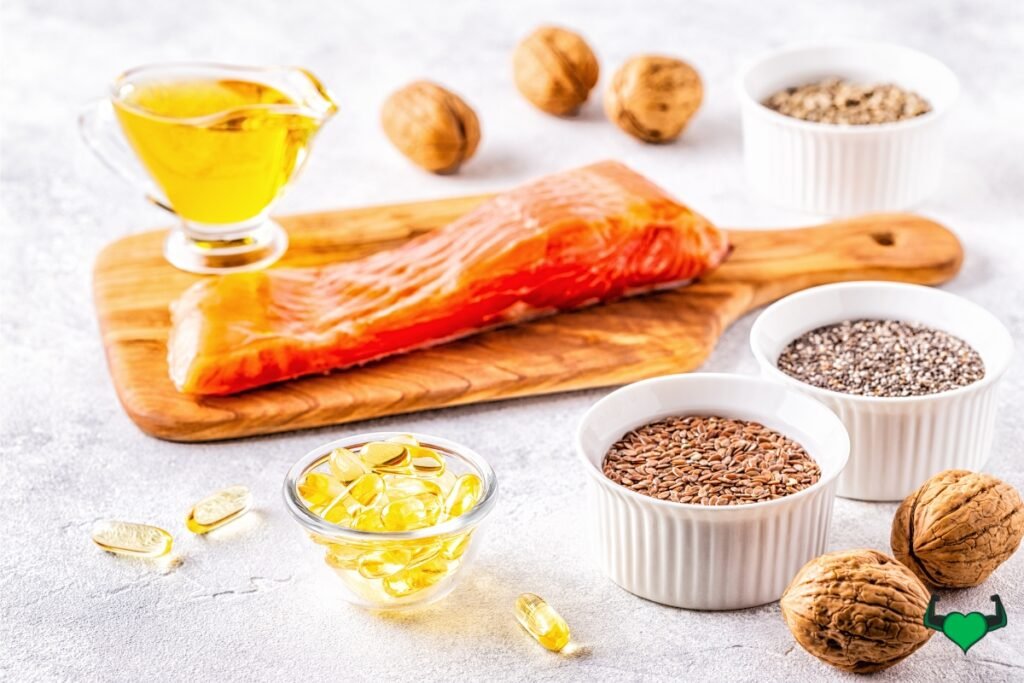
Chia Seeds
Chia seeds are one of the best vegan sources of omega-3, particularly rich in ALA (Alpha-Linolenic Acid). Just one ounce of chia seeds provides nearly 5 grams of Omega-3s, making them a powerhouse for heart and brain health. They’re also high in fiber, protein, and antioxidants. Chia seeds are versatile and can be easily added to smoothies, oatmeal, or used to make chia pudding, helping vegans meet their Omega-3 needs effortlessly.
Flaxseeds
Flaxseeds are one of the most potent vegan sources of Omega-3, particularly high in ALA (Alpha-Linolenic Acid). Just one tablespoon of ground flaxseeds provides around 2 grams of Omega-3s, supporting heart health and reducing inflammation. To maximize absorption, it’s best to consume flaxseeds ground rather than whole. They can easily be added to smoothies, oatmeal, or baked goods, making them an easy and nutritious addition to any vegan diet.
Hemp Seeds
Hemp seeds are an excellent vegan source of Omega-3, offering a balanced ratio of Omega-3 to Omega-6 fatty acids. They are rich in ALA (Alpha-Linolenic Acid) and provide about 1 gram of Omega-3s per tablespoon. Besides their Omega-3 content, hemp seeds are also high in protein and essential minerals, making them a nutritious addition to a vegan diet. You can easily sprinkle them on salads, smoothies, or yogurt to boost your intake of healthy fats.
Walnuts
Walnuts are a top vegan source of Omega-3, particularly rich in ALA (Alpha-Linolenic Acid). Just a handful of walnuts provides about 2.5 grams of Omega-3s, supporting heart and brain health. In addition to their Omega-3 content, walnuts are packed with antioxidants and healthy fats, making them a nutritious snack or a great addition to salads, oatmeal, and baked goods for those following a vegan diet.
Vegan Sources of EPA and DHA

Algal Oil
Algal oil is one of the best vegan sources of Omega-3, providing a direct source of EPA and DHA, which are typically found in fish. Derived from algae, algal oil offers the same heart and brain health benefits as fish oil, making it an ideal supplement for those on a vegan diet. It’s particularly valuable because it supplies the essential Omega-3s that are difficult to obtain from plant-based foods alone. Algal oil supplements are an effective way for vegans to ensure they meet their Omega-3 needs.
Seaweed
Seaweed is a valuable vegan source of Omega-3, particularly rich in EPA and DHA, which are typically harder to obtain from plant-based diets. Varieties like nori, wakame, and spirulina offer these essential fatty acids, along with a wealth of vitamins and minerals. Incorporating seaweed into your diet, whether through sushi, salads, or supplements, can help vegans meet their Omega-3 needs and support overall health.
Supplementing with Omega-3: Do You Need It?
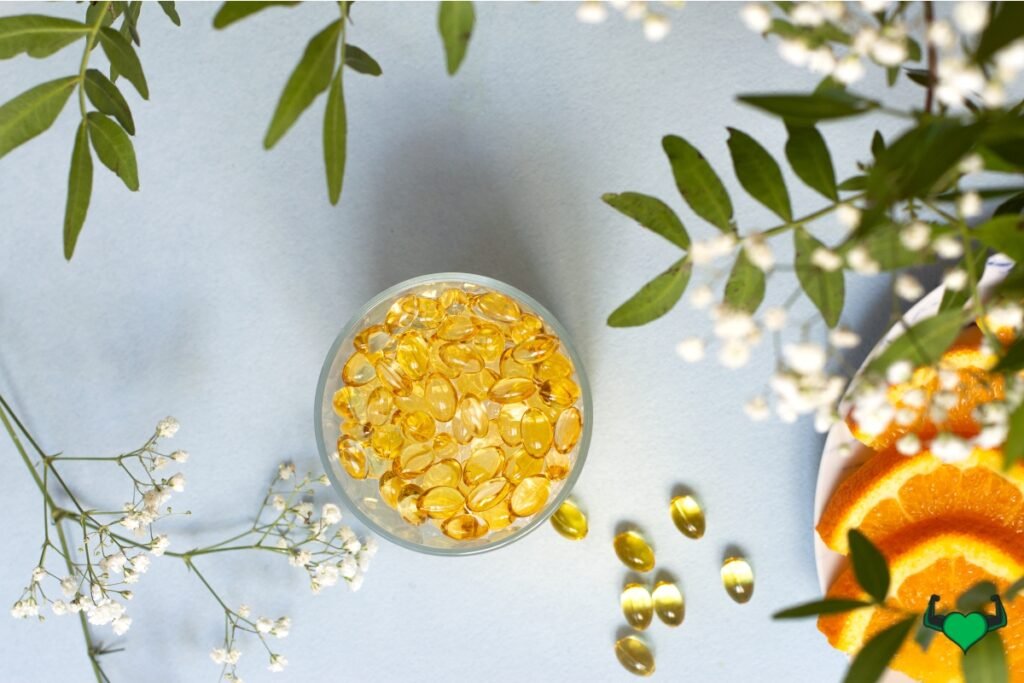
When to consider Omega-3 supplements on a vegan diet
Consider Omega-3 supplements on a vegan diet if you’re not regularly consuming enough vegan sources of Omega-3, like flaxseeds, chia seeds, or walnuts, or if you have specific health concerns such as heart or brain health. Since plant-based diets often lack direct sources of EPA and DHA, a high-quality algal oil supplement can help ensure you’re meeting your Omega-3 needs, especially if your diet lacks variety or you’re at risk for deficiency.
Choosing the right Omega-3 supplement: What to look for
When choosing the right Omega-3 supplement on a vegan diet, look for algal oil, which provides both EPA and DHA, the essential forms of Omega-3 typically found in fish. Ensure the supplement is third-party tested for purity and potency, free from contaminants, and clearly labeled as vegan. Also, consider the dosage to meet your specific needs, particularly if your diet lacks sufficient vegan sources of Omega-3 like flaxseeds or chia seeds.
Potential benefits and risks of supplementation
Supplementing with Omega-3, particularly through vegan sources like algal oil, offers potential benefits such as improved heart health, enhanced brain function, and reduced inflammation. These supplements are especially useful for vegans who may struggle to get enough EPA and DHA from diet alone. However, there are risks if taken excessively, including blood thinning or negative interactions with certain medications. It’s important to choose high-quality supplements and consult with a healthcare provider to ensure they fit your individual health needs.
Tips for Maximizing Omega-3 Absorption

Importance of reducing Omega-6 intake
Reducing Omega-6 intake is important because excessive Omega-6 can promote inflammation, especially if not balanced with sufficient Omega-3. Many processed foods and vegetable oils are high in Omega-6, which can offset the benefits of Omega-3s. For those relying on vegan sources of Omega-3, like flaxseeds and chia seeds, it’s crucial to minimize Omega-6 consumption to ensure a healthier balance, supporting heart health and reducing inflammation.
Pairing Omega-3 sources with other nutrients for better absorption
Pairing Omega-3 sources with other nutrients can enhance their absorption and effectiveness. For vegans, combining Omega-3-rich foods like flaxseeds or chia seeds with foods high in fat, such as avocados or nuts, helps improve the absorption of ALA. Additionally, ensuring adequate intake of antioxidants, like those found in leafy greens and berries, can protect Omega-3s from oxidation, making them more effective in supporting heart and brain health.
Practical tips for ensuring you meet your daily Omega-3 needs
To meet your daily Omega-3 needs on a vegan diet, include a variety of Omega-3-rich foods like flaxseeds, chia seeds, hemp seeds, and walnuts in your meals. Aim to add a tablespoon of ground flaxseeds or chia seeds to smoothies, oatmeal, or yogurt daily. Consider incorporating algal oil supplements to ensure you’re getting enough EPA and DHA, especially if your diet lacks diversity. Balancing Omega-6 intake by reducing processed foods and vegetable oils will also help optimize the benefits of your Omega-3 sources.
Conclusion
Maintaining an optimal Omega-3 intake on a vegan diet doesn’t have to be difficult! With the right plant-based sources and a bit of knowledge, you can ensure that you’re getting enough of these essential fatty acids to support your health. Whether you opt for chia seeds, walnuts, or algal oil supplements, the key is consistency and variety. Ready to take your vegan diet to the next level? Start by incorporating these Omega-3-rich foods into your meals today!

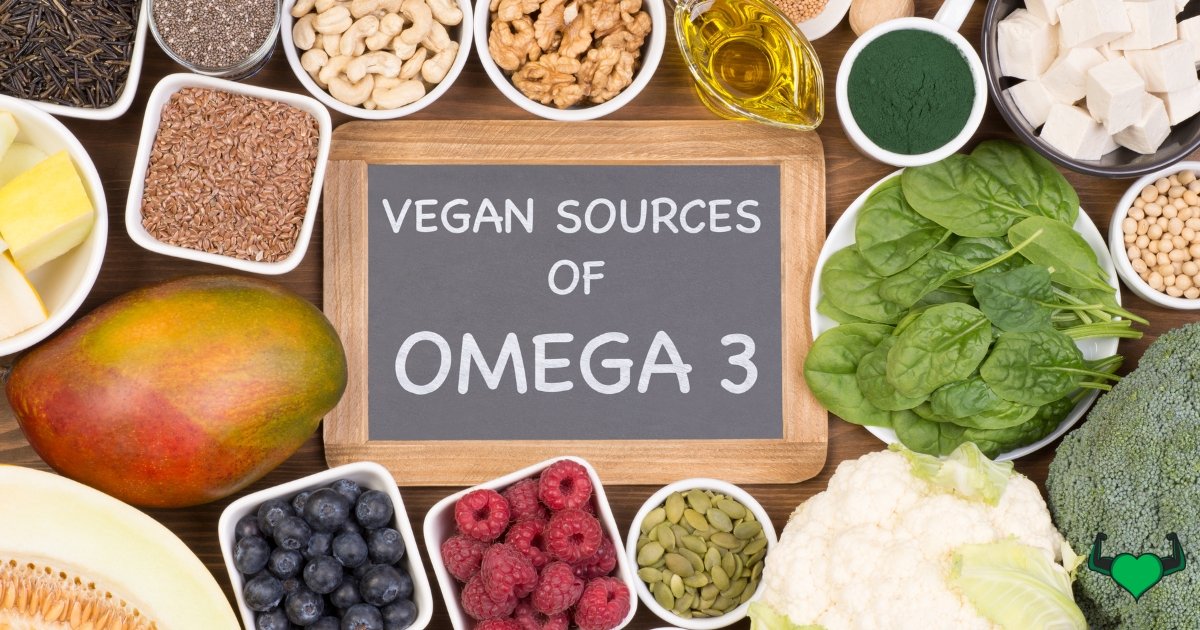

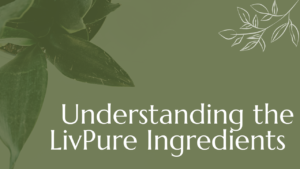

Pingback: Best Vegan Multivitamins for 2024: Top Choices for Optimal Nutrition - VitalityFitHub